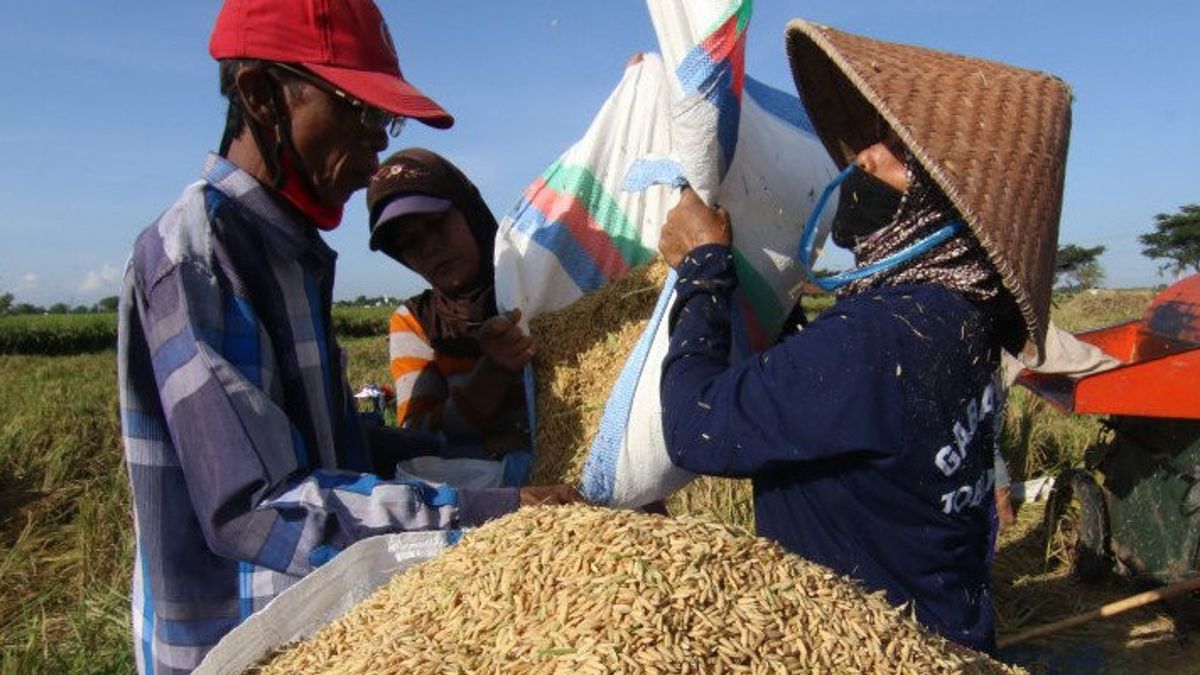JAKARTA - Bank Indonesia (BI) encourages local governments in South Sumatra to immediately distribute food subsidy programs to reduce inflation turmoil after the increase in fuel oil prices.
Head of BI South Sumatra Erwin Soeriadimadja in Palembang, Sunday, October 2, said BI provides space for local governments to carry out food inflation control movements according to the direction of the central government.
BI as the Head of the Regional Inflation Control Team (TPID) assessed that the most appropriate step was to distribute subsidies that had been regulated by the Ministry of Home Affairs as soon as possible, such as transportation and food subsidies subsidies and others.
He did not deny that the government's policy of increasing fuel prices had an impact on rising prices.
<quo;But how impact, will be seen in the release of BPS tomorrow (October 3, 2022),” he said after attending the launch of the Rice Cheap Market at Lemabang Market Palembang, as reported by Antara.
The Central Statistics Agency (BPS) released that South Sumatra Province experienced deflation of 0.82 percent in August 2022 due to the decline in the prices of a number of commodities that had been the trigger for inflation.
The deflation was triggered by a decrease in the prices of red chili, shallots, broiler meat, and air transport rates.
With the deflation of 0.82 percent, South Sumatra's inflation in the calendar year or throughout January – August 2022 reached 4.29 percent.
However, with the increase in fuel prices on September 3, it is certain that the inflation rate in that month will increase.
However, Erwin emphasized that TPID will continue to strive so that inflation does not touch 5.0 percent by the end of the year. Moreover, the inflation target is expected in the range of 3.0 percent plus minus 1.0 percent throughout January-December 2022.
For this reason, BI continues to encourage local governments to take seven steps to the National Movement for Food Inflation Control (GNPIP), of which six steps are improving the supply and support of local government budgets.
What is clear is that the inflation turmoil that affects people's purchasing power is also influenced by the moment towards the end of the year and the smooth supply and distribution of food, he said.
So far, the most felt food price turmoil in rice commodities. The price of rice for the medium group moves from around Rp. 10,000 per kg to Rp. 12,000 per kg.
Based on the latest data from Bank Indonesia, South Sumatra, rice prices experienced the highest increase of 4.31 percent (mtm) followed by 3.95 percent cayenne pepper, 1.65 percent garlic, 0.84 percent beef. Meanwhile, commodities such as chili, shallots, sugar, chicken meat and cooking oil actually fell.
The English, Chinese, Japanese, Arabic, and French versions are automatically generated by the AI. So there may still be inaccuracies in translating, please always see Indonesian as our main language. (system supported by DigitalSiber.id)
Tags les plus populaires
#Prabowo Subianto #Nouvel An #Fête des mères #nataru #NatalPopulaire
23 Desember 2024, 17:35









